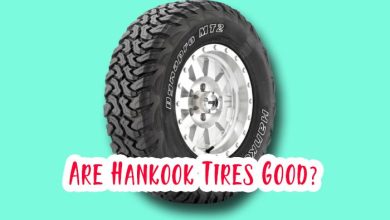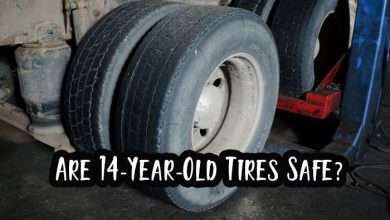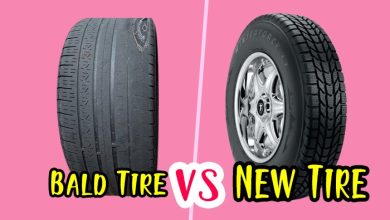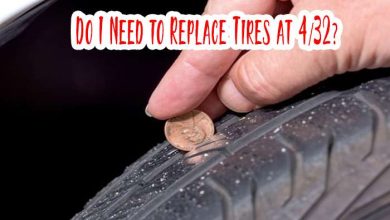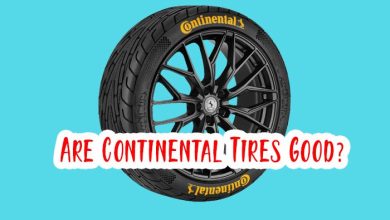Are Tire Rotations Necessary? Why You Need to Rotate Your Car Tire?
In the world of automobiles, where rubber meets the road, the longevity and performance of your tires are pivotal.
As a self-proclaimed tire specialist, let’s delve into the intriguing realm of tire rotations and answer the age-old question: Are tire rotations necessary?
Absolutely. Tire rotations are not a mere luxury; they’re a necessity. Regular rotations ensure that the wear and tear on your tires are balanced, enhancing their lifespan and overall performance.
The Basics of Tire Rotation
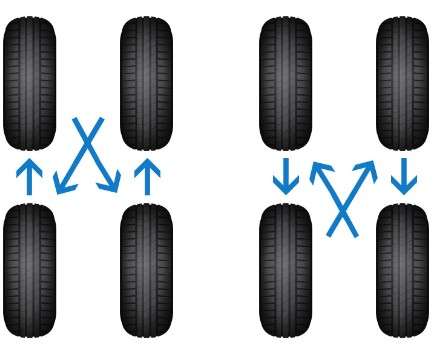
Tire rotation is akin to a choreographed dance for your car’s wheels. It involves moving each tire to a different position, ensuring even wear. Why is this necessary, you ask?
Well, tires don’t wear uniformly due to factors like steering and drivetrain configurations. Imagine your tires as the cast of a play and rotation as a script, ensuring every character gets equal time on the stage.
Also Read: Can Low Tire Tread Cause Vibration?
Signs Your Tires Need Rotation
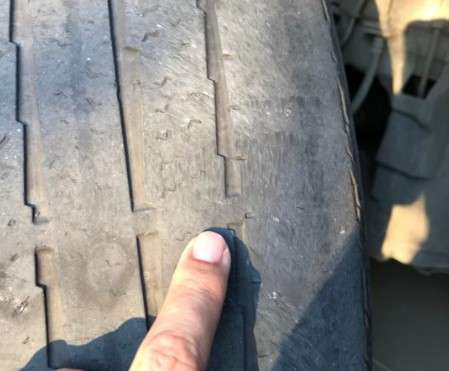
Let’s set the stage before diving into the signs that indicate your tires need rotation. Imagine your tires as the unsung road heroes, bearing the weight of your adventures and daily commutes.
Now, let’s unravel the subtle cues your trusty rubber companions might give you, signaling it’s time for a tire tango.
1. Tire Tread Unevenness: If you notice uneven wear on your tire treads, it’s a glaring sign that rotation is overdue. This asymmetry can lead to compromised traction and, ultimately, safety concerns.
2. Vibration While Driving: Ever felt your car vibrating strangely? Misaligned or imbalanced tires could be the culprits. Rotation helps distribute the load evenly, ensuring a smoother ride.
3. Uneven Tire Pressure: Inconsistent tire pressure might hint at the need for rotation. Properly rotated tires maintain uniform pressure, improving fuel efficiency and tire lifespan.
Are Tire Rotations Necessary?
Are Tire Rotations Necessary? Yes, tire rotations are necessary for even tread wear and to extend the life of your tires.
Tires wear unevenly due to the different forces they experience. For example, the front tires bear more weight than the rear tires and turn more often.
As a result, they tend to wear out faster. Rotating the tires every 5,000 to 7,500 miles will help to even out the wear and extend the life of your tires.
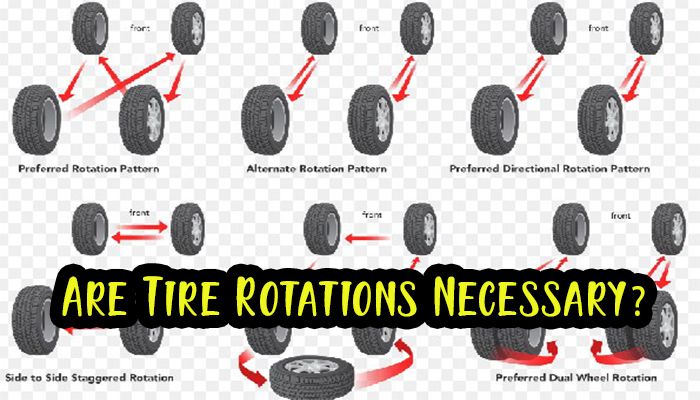
In addition to tread wear, tire rotations also help to improve fuel economy and handling. When your tires are worn unevenly, it can cause your car to pull to one side or the other.
This can make it difficult to control your car and reduce fuel economy.
Here are some of the benefits of tire rotations:
- Even tread wear
- Extended tire life
- Improved fuel economy
- Improved handling
If you don’t rotate your tires, you can expect them to wear out prematurely. In the long run, this will cost you money, as you will have to replace your tires more often.
So, how often should you rotate your tires? Most experts recommend rotating your tires every 5,000 to 7,500 miles. However, you may need to rotate them more often if you do a lot of city driving or have a four-wheel drive vehicle.
You can rotate your tires yourself, but having a professional do it is easier and safer. When your tires are rotated, the technician will also inspect your tires for damage and check the tire pressure.
Read More: Are Yokohama Tires Good?
Benefits of Regular Tire Rotations
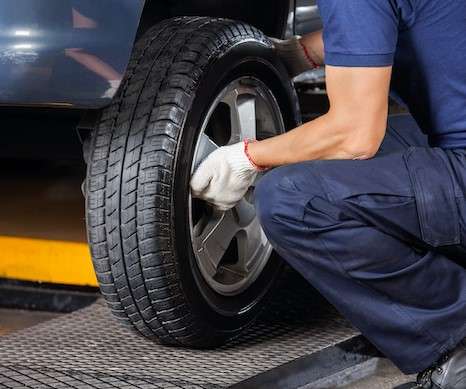
1. Extended Tire Lifespan: Just like switching positions on a mattress ensures even wear, rotating your tires promotes longevity. This means fewer visits to the tire shop and more money saved in the long run.
2. Enhanced Fuel Efficiency: Even tire wear improves fuel efficiency. When your tires work uniformly, your car doesn’t have to compensate for irregularities, resulting in better gas mileage.
3. Optimal Performance: Balanced wear means balanced performance. Whether navigating city streets or cruising on the highway, well-rotated tires provide a stable and secure driving experience.
Common Misconceptions About Tire Rotations
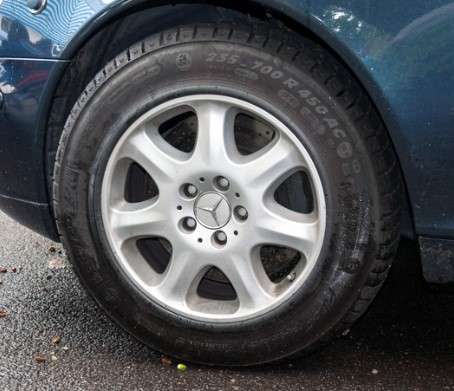
1. Myth: Only Front Tires Need Rotation Contrary to popular belief, all four tires deserve equal attention. Rotating them ensures that each tire carries a fair share of the load, preventing premature wear and tear.
2. Myth: It’s Just a Money-Making Scheme Some skeptics view tire rotations as a ploy to extract more money during service visits. In reality, it’s a cost-effective strategy to extend tire life and maintain a safer driving experience.
3. Myth: It Doesn’t Matter If I Skip a Rotation Skipping rotations is akin to skipping meals. Your tires might survive, but they won’t thrive. Consistency is key in ensuring the health and longevity of your tires.
The Relationship Between Tire Rotation and Wheel Alignment
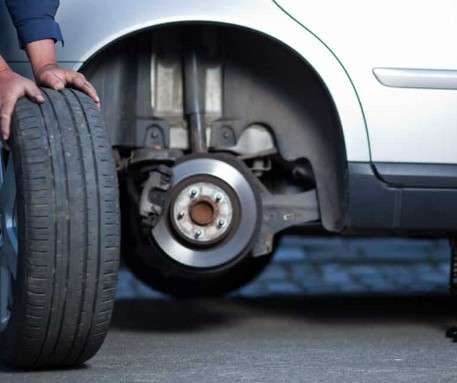
Think of tire rotation as the proactive cousin of wheel alignment. While rotation focuses on even wear, alignment ensures that your tires point in the right direction.
Pairing these two practices is like giving your car a GPS for the road of longevity.
Conclusion
As we bid farewell to the mysteries of tire rotations, we must encourage fellow road warriors to share their experiences.
Do you have a tire rotation story to tell? Any tire-related projects that saved the day? Share them, and let’s build a community where tire enthusiasts unite!
Glossary
- Tire Rotation: The practice of regularly changing the position of tires on a vehicle to ensure even wear.
- Wheel Alignment: The adjustment of a vehicle’s suspension to ensure the wheels are perpendicular to the ground and parallel to each other.
- Tire Tread: The pattern of grooves on the surface of a tire, designed to provide traction.
